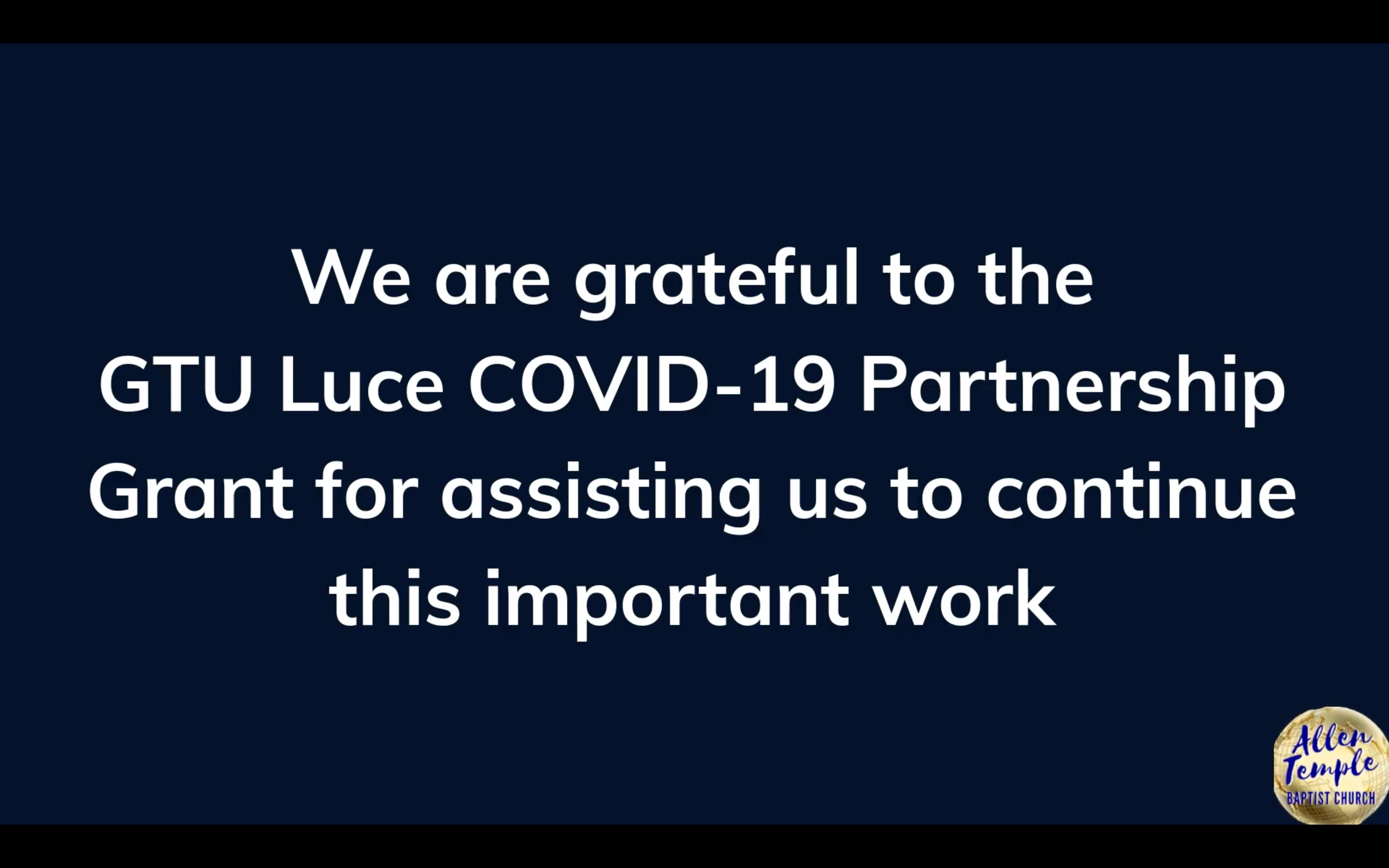"North American Islamic Shelter For the Abused (NISA) is sincerely grateful to the Graduate Theological Union and its Center for Islamic Studies for their collaboration with the Henry Luce Foundation’s Theology Program in an initiative that involves rapid responses to the COVID-19 pandemic, through their generous grants. NISA is a very thankful recipient."
--Faiza J. Ghafoor, NISA Executive Director
GTU Luce COVID-19 Bay Area Community Partnership Grants
Allen Temple Baptist Church was organized in 1919 in Oakland, CA . Throughout its history, the church has served as a bright beacon of faith, hope, and love beyond its four walls. The congregation is affiliated with both the American Baptist Churches USA and the Progressive National Baptist Convention, Inc.
Click the image below to watch a short testimonial of how the Luce COVID-19 grant benefited Allen Temple Baptist Church's community:
All people have a right to a clean and healthy environment in which their communities can live, work, learn, play and thrive. Towards this vision, APEN brings together a collective voice to develop an alternative agenda for environmental, social and economic justice. Through building an organized movement, APEN strives to bring fundamental changes to economic and social institutions that will prioritize public good over profits and promote the right of every person to a decent, safe, affordable quality of life, and the right to participate in decisions affecting our lives. APEN holds this vision of environmental justice for all people. Our work focuses on Asian immigrant and refugee communities.
Below is a photo of APEN's Richmond Organizing Director with bags for delivery to some of APEN's Richmond leaders (members) in August 2020, which was carried out in lieu of an annual Rice and Water Festival that was cancelled due to COVID. These gift bags included a hot meal, Richmond is Home zine produced by APEN members and RichmondLAND, and other campaign materials.
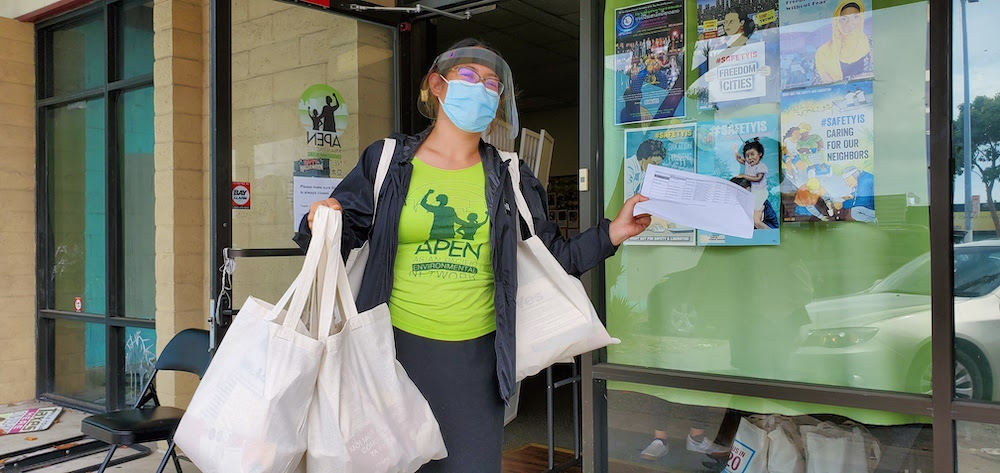
Averroes High School serves a community impacted disproportionately by the COVID pandemic. At least 25% of students’ families suffered a loss of income severe enough that they cannot afford school tuition. Many live in multigenerational homes with high-risk family members. Others have become responsible for caring for younger siblings and monitoring their online schooling. The generous grant from GTU has provided scholarships that allowed Averroes students to stay in school this year despite the financial hardships they are facing.
See the impact report of Averroes HS

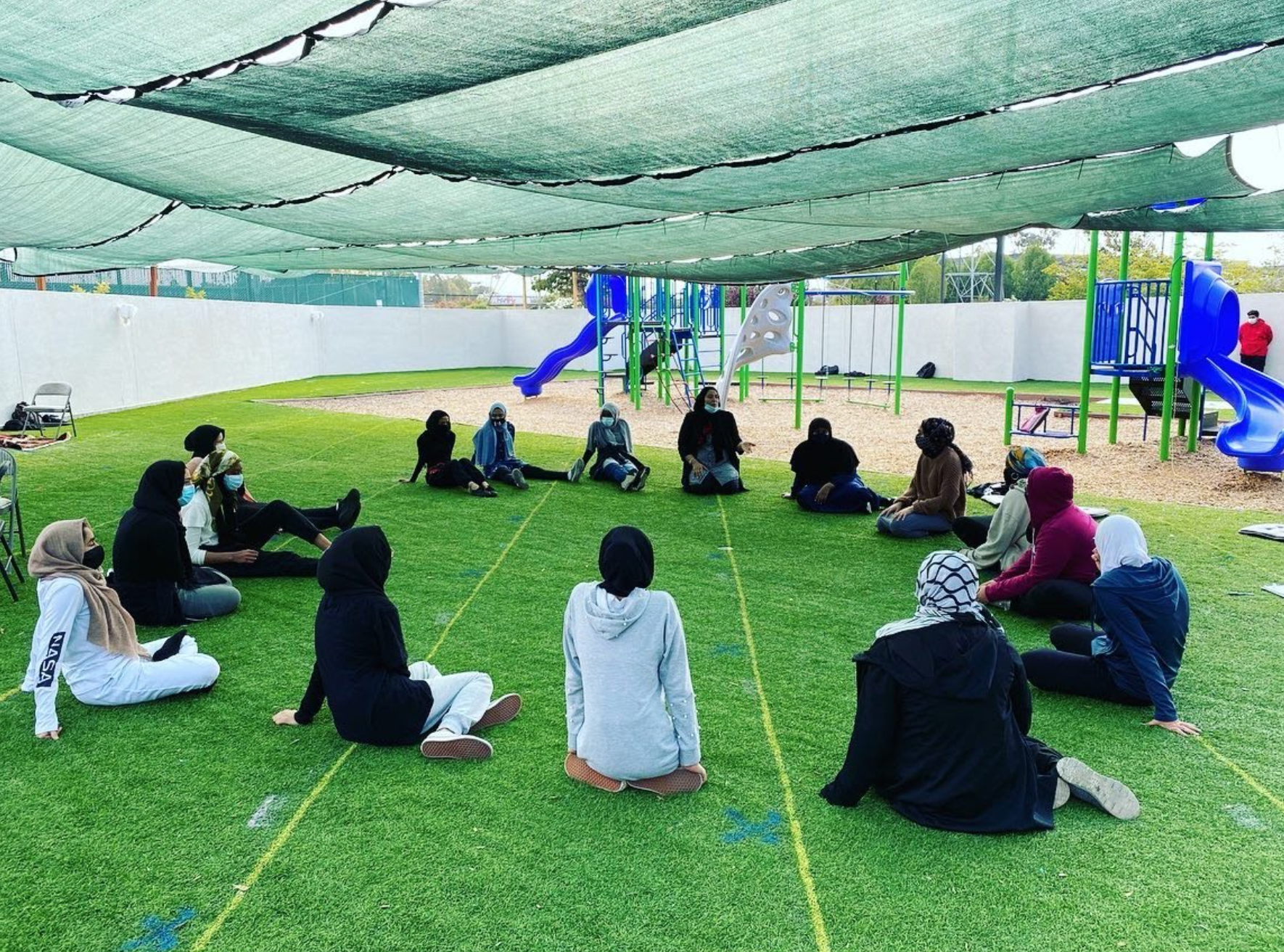
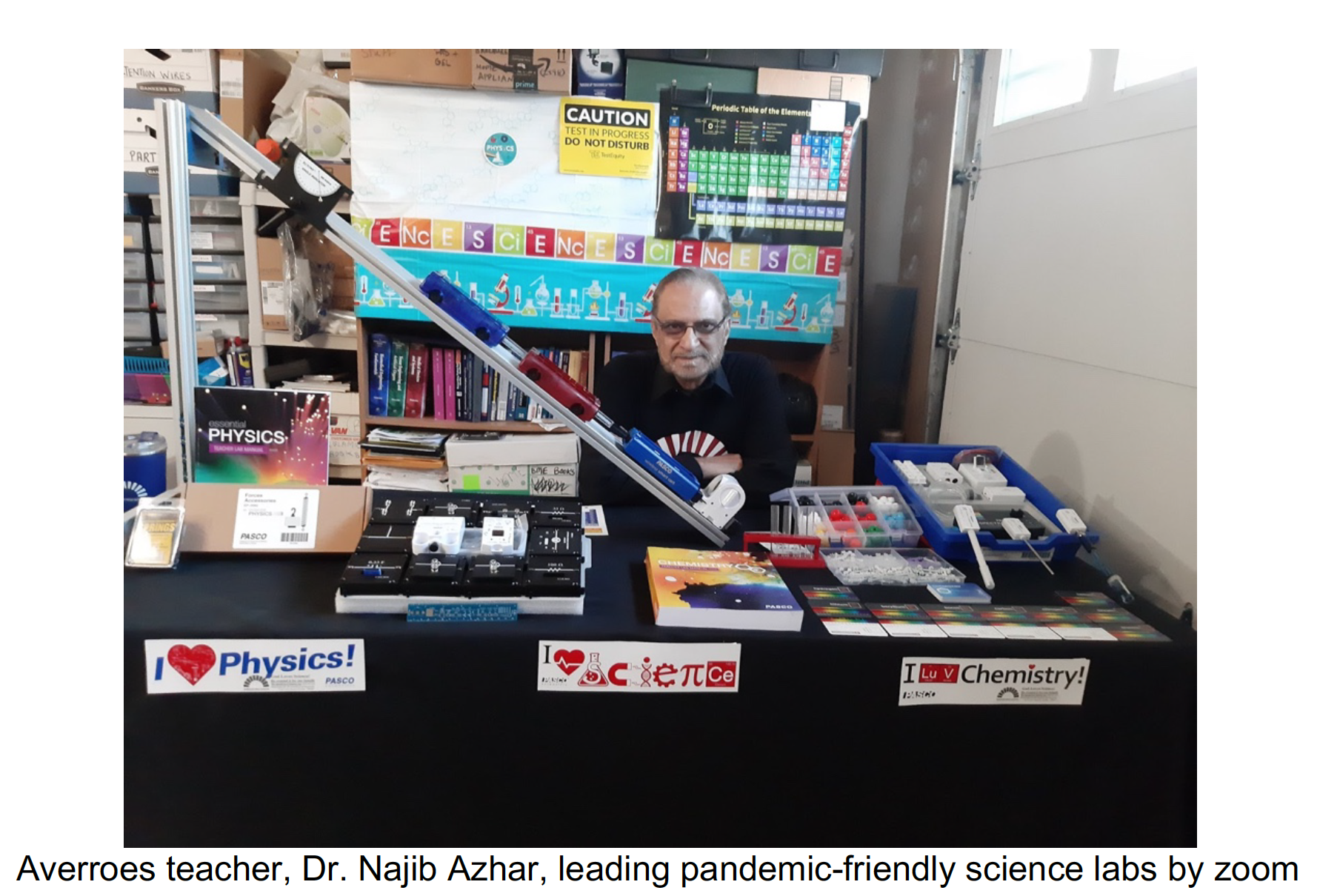
Averroes High School is a private faith-based, college prepartory high school, dedicated to helping students to achieve personal and academic success through proven best practices of teaching and learning. Averroes HS trusts holistic education that nurtures academics, social and spiritual well-being, and their educational model is based on a three-pronged approach: Academics, Enrichment and Environment.
The Berkeley Masjid strives to increase Islamic awareness while providing a community focal point for Muslims and for all those interested in learning more about the Islamic tradition. A primary goal of the Berkeley Masjid is to serve as a center of excellence for both Islamic education and outreach while embodying the Islamic ideals of tolerance and enlightenment.
From the Berkeley Masjid: "We at the Berkeley Masjid thank the GTU and the Henry Luce Foundation for the Covid-19 Community Partnerships Grant. We were able to partner with the Aaron Wallace foundation for the purchase of a refrigerated truck and were jointly able to donate and distribute food to the homeless and food insecure, and for food distributions at various mosques and churches." The truck is pictured below.
With the Luce grant through the GTU, the Berkeley Masjid was also able to support members impacting the community through service, including food distribution and direct rent relief.
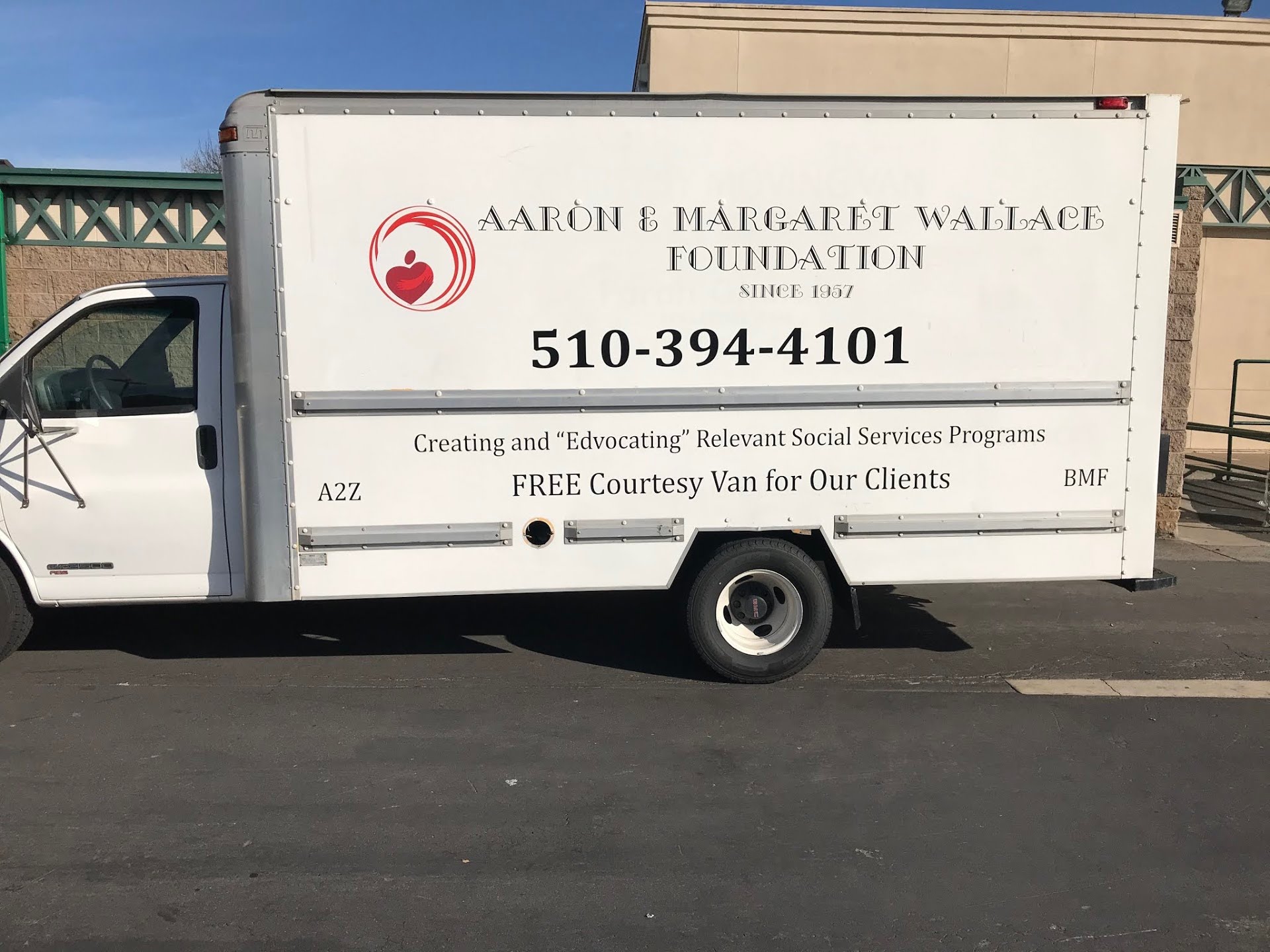
Genesis has continued to engage hundreds of voters and residents to pressure elected officials to create and support more equitable laws, policies and procedures. We are grateful to the GTU-Luce COVID19 Community Partnership Grant for supporting our effort to impact the root causes of poverty and inequity.
Watch a video of the Genesis program: Gamaliel of California: Passport to Power 2021
Since its inception in 2006, Genesis has centered its work on those who are the most vulnerable (youth, elders, people with disabilities). As the Bay area affiliate of the Gamaliel Network, Genesis aims to impact structural racism through its issue campaigns. In 2019, a group of Genesis clergy and lay leaders came together to create its Vision Statement:
The beloved community becomes a reality when we act on our values to create a more just and inclusive world. The group and each leader is stronger when everyone brings their values and beliefs to the work of Genesis. Genesis believes that values come from stories. Our values are animated by our spiritual commitments and practices. Here are our commitments in order to practice being the beloved community.
- Our unity is grounded in inclusion and therefore everyone’s gifts are essential and welcomed.
- Genesis aspires to reconcile and heal divisions with grace and patience.
It is with great honor and gratitude to report how the Interfaith Council of Contra Costa County’s ICARE program has utilized your generous grant during the pandemic. Nineteen congregations have participated in our programs, some multiple times. We have served the needs of six nonprofit partners’ clients, most of them two times over the past year. Our impact has been significant and truly appreciated by our nonprofits.
Staff for ICARE Program
ICARE is currently being operated on a very stringent budget, thanks to the generosity of volunteers. Our ICARE staff consists of one part time outreach contractor whose job is to notify our congregational members of upcoming projects and encourage them to cosponsor projects. This contractor is paid almost exclusively through grants. Our Executive Director donates much of his time to ICARE and the balance of his time is paid by general administration funding through the Interfaith Council receives and we have three volunteers who establish relationships with our nonprofit partners, create our Sign Up Genius site (which is where all sign ups and projects are coordinated), and oversee and manage the overall program.
Congregational outreach effort and identifying nonprofits in need of volunteers
We have 108 members at the Interfaith Council and we are focused on educating and inviting them to participate in direct service projects through ICARE. ICARE is a unique opportunity for them to share their values of helping those in need while building interfaith relationships with their faith neighbors. We have a part time contractor actively working with our members plus we promote ICARE at our Elected Council meetings and through e-blasts. We have one volunteer who works with our Executive Director to identify and establish relationships with nonprofit partners in need of volunteer support. We work with nonprofits with solid reputations and histories of delivering goods and services to those in need in our county. Some of the projects we accomplished this year included the fund raising, purchasing of supplies and assembly of:
- Food Bags and Kits
- Thanksgiving Food Bags
- Hygiene/Health Kits
We have also helped job-seeking interns who’ve completed their training through Opportunity Junction with interviewing skills exercises and even conducted a virtual job fair! This has become a regular activity with each successive cohort of interns.
We are finalizing our calendar of projects through the rest of the year, including outdoor clean up at low-income home sites, food and hygiene kit creation and assembly, and more with new nonprofits. Because of your vision and financial assistance we’ve been able to make a tangible, positive impact in the lives of those in need in our community while strengthening relationships among people of different faith traditions and offering a light at the end of our pandemic tunnel by creating these opportunities for safely connecting and serving others.
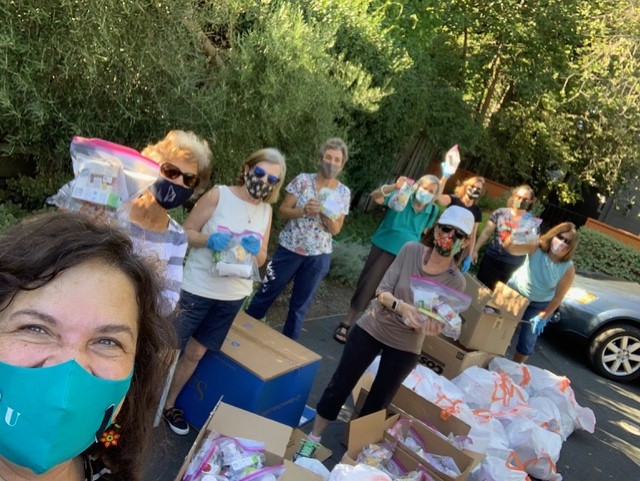
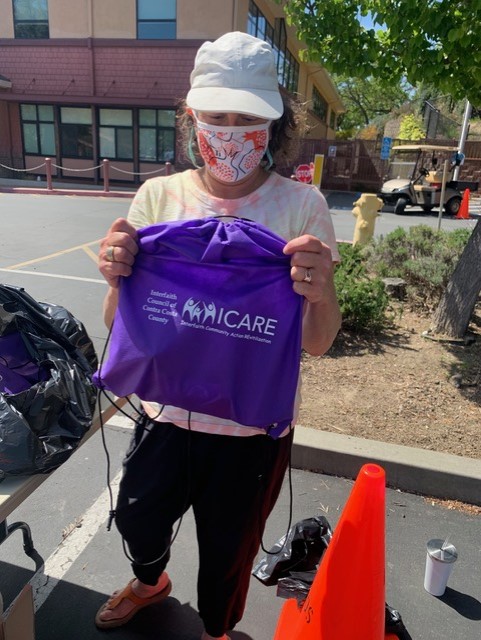
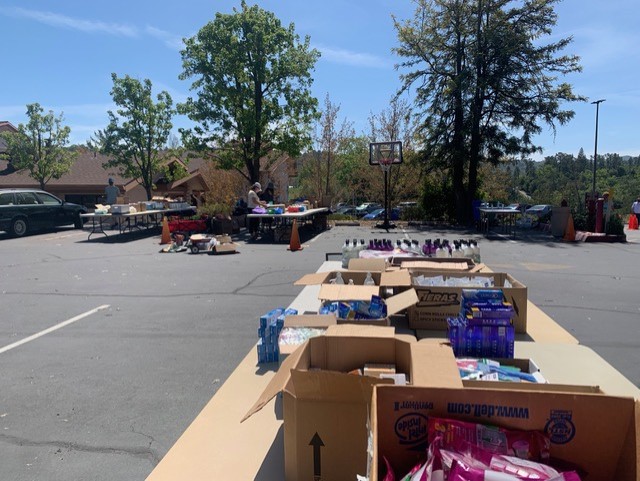

The Interfaith Council, known as the Council of Churches, was originally organized for the primary purpose of providing chaplaincy ministries in various county institutions on behalf of local congregations. The Council became interfaith in 1997, widening its membership to include congregations and faith organizations that represent the growing pluralistic population of Contra Costa County. The council remains committed to supporting the religions and communities in the county.
The pandemic and its economic consequences have deepened inequality: immigrants, incarcerated people, communities of color, and low-income communities – the groups we organize – have been hit particularly hard.
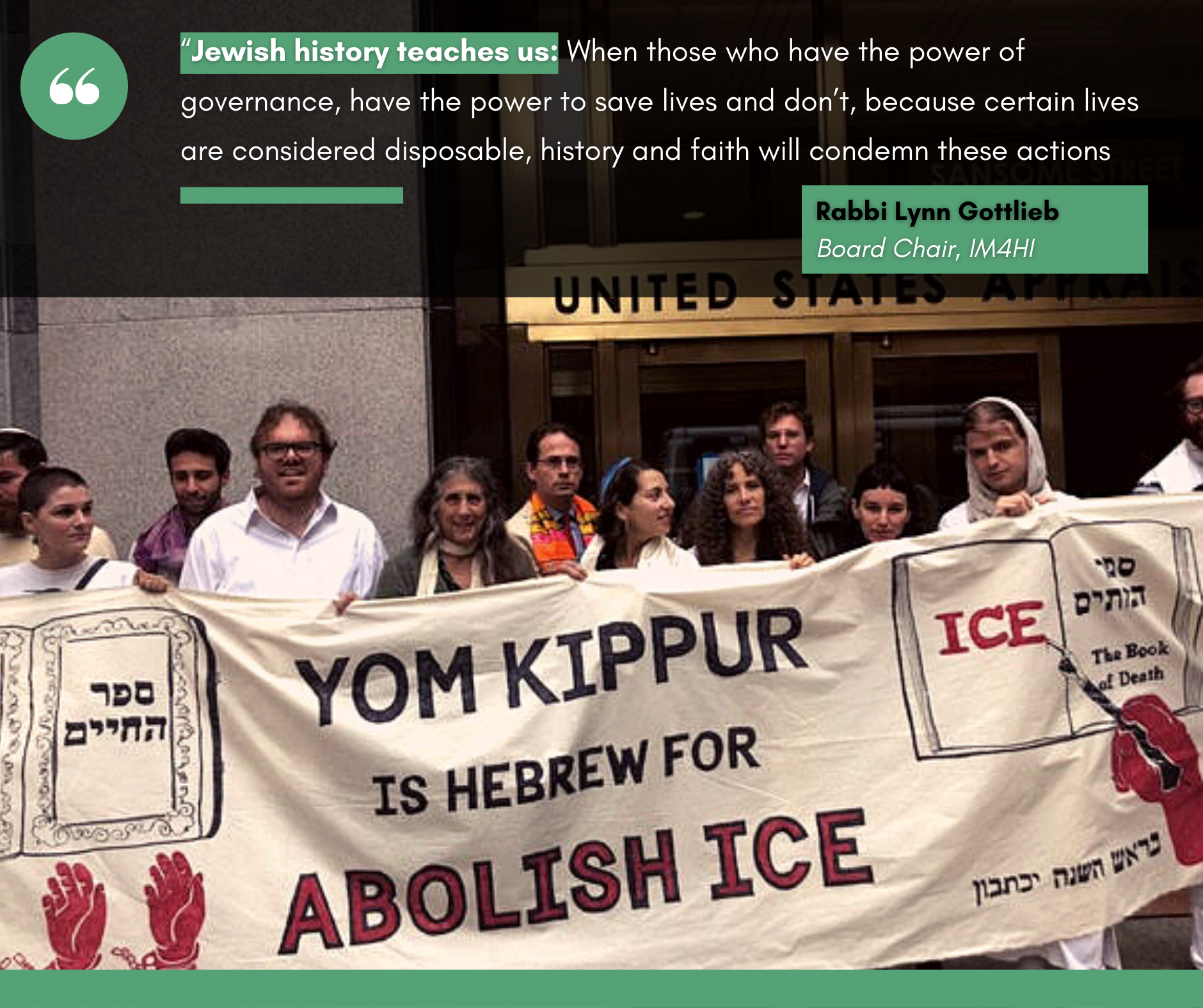 .
. 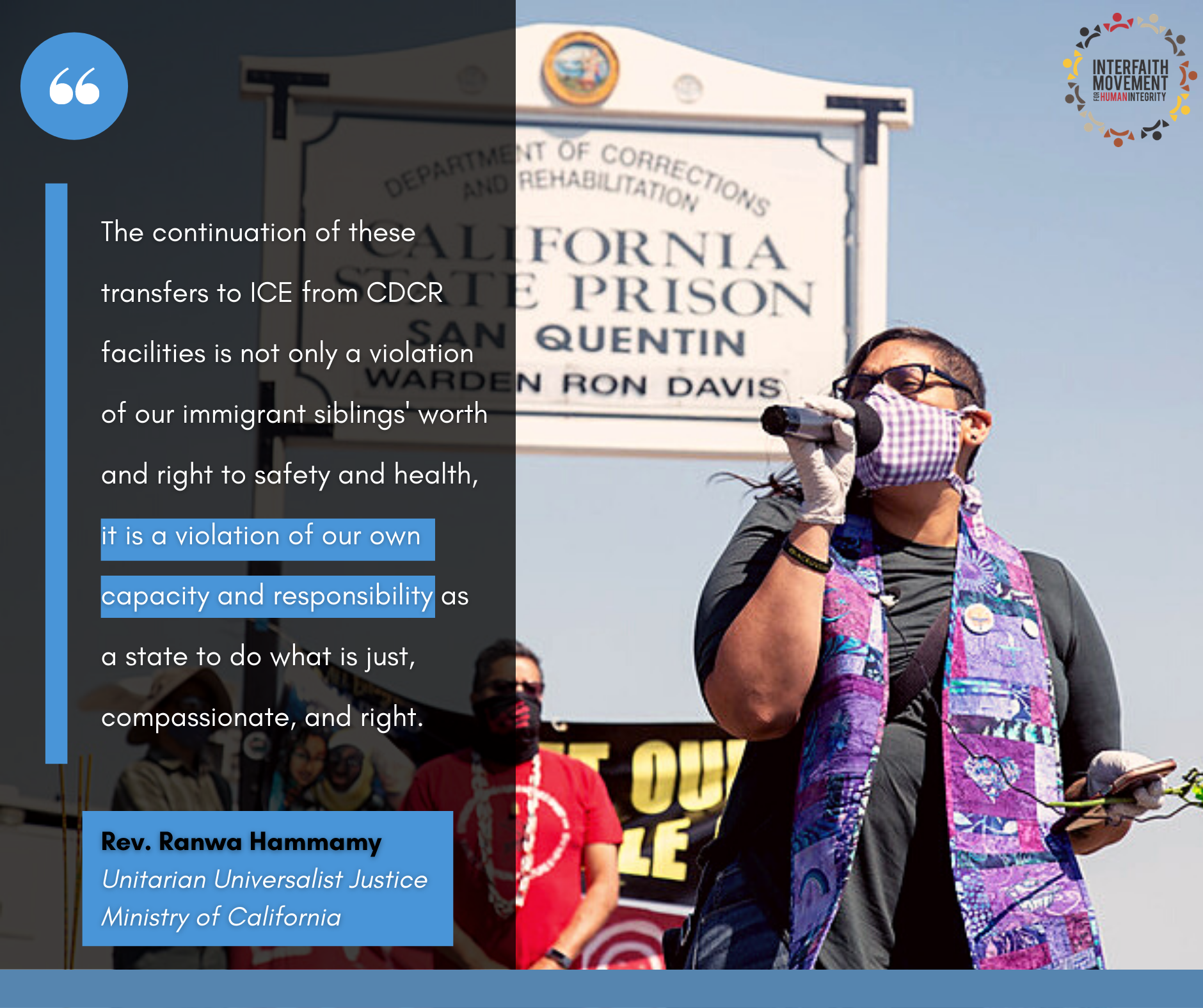
First, we protected immigrants.
COVID-19 and its economic fallout were a disaster for California immigrants. Some lost their jobs in the economic contraction, some were forced to continue working in unsafe conditions, and many live in overcrowded housing. Undocumented folks often lacked healthcare and were reluctant to seek medical attention. As a result, the rate of infection was extremely high in immigrant communities, and so was economic dislocation, which was deepened by the fact that undocumented immigrants were ineligible for federal relief efforts.
The Interfaith Network reached out to families we supported in recent years and found many of them in crisis. We created an economic relief fund and dispersed $40,000 to 50 immigrant families. We’re currently raising funds to replenish our fund as a second wave of requests are coming in as the months drag in. We compiled a Resource Guide and online training of how to use the guide and access resources. Continue to organize community networks of support and train volunteers to support new arrivals, those getting released from detention with emergency housing, resources, and 6-12 month accompaniment.
During the year, we also advocated for the release of people from detention to reduce the spread of the virus – both individually and en masse. Thanks to our advocacy and the work of many allies, immigration detention is now lower than it has been in years. Nationwide, just 40% of the beds are currently occupied. In California, the number of those held in immigration detention is at an all time low. The reduction of numbers of those in immigration detention is a huge win even as for profit detention corporations increased their bed capacity is a huge win for the immigrant rights movement and we should celebrate it. We are seeking ways to make these reductions permanent in the coming year and demand that ICE not refill these empty beds and move towards the abolition of immigration detention.
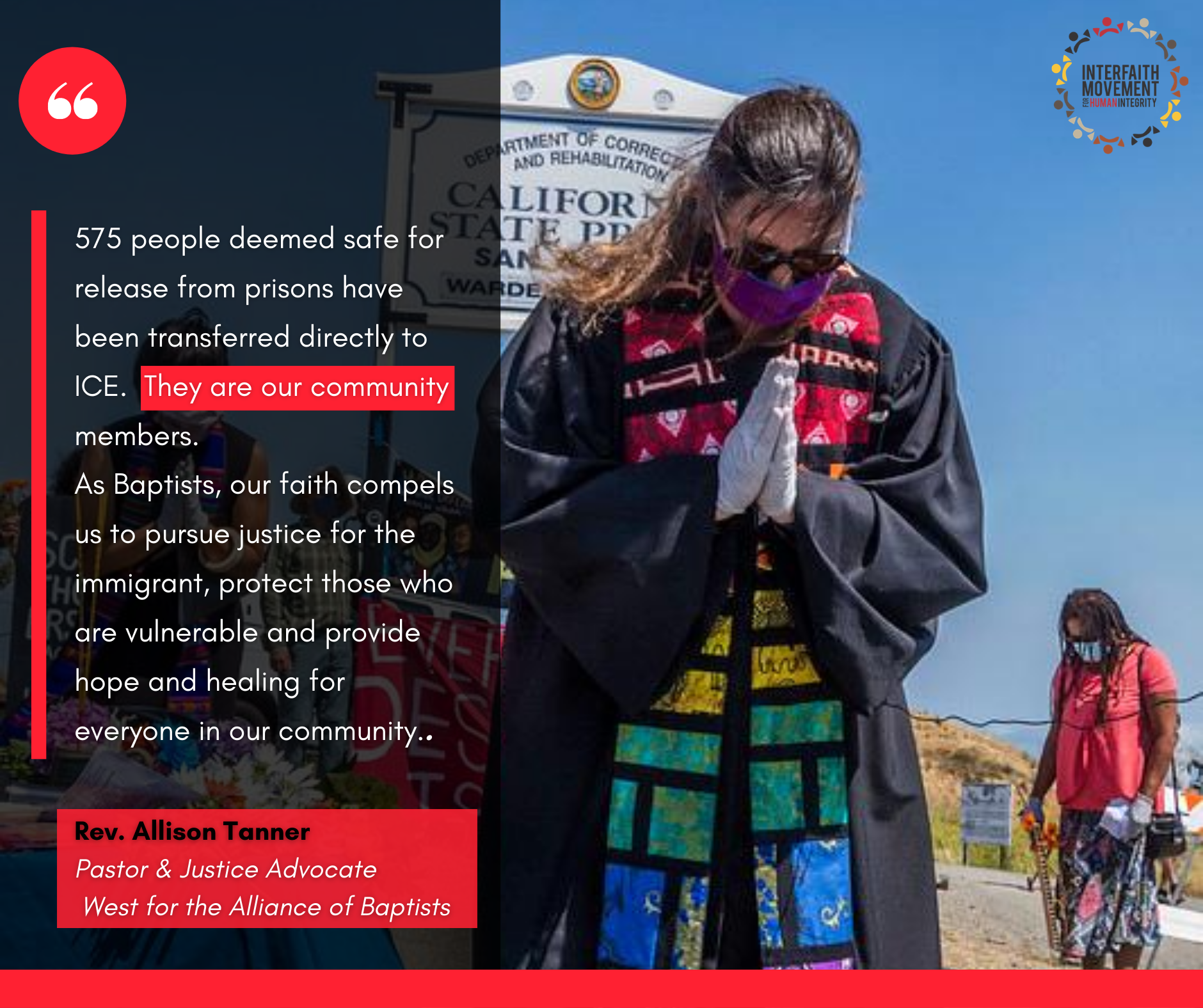
We also worked to end mass incarceration.
This was a year in which our country began to question more deeply the institutions of police and prison. The spread of COVID in prisons added fuel to the fire demanding freedom for those behind bars. But while public pressure and judicial orders forced ICE to ICE freed many detained immigrants in 2020, our criminal justice system kept a tight hold. The state ignored the voices of faith, community and families and appealed judicial orders to reduce numbers. There were the normal course of releases and some who got out a few weeks early, but on the whole, California, only released dozens out of the thousands whom the state deemed highly vulnerable to the disease and early death. There were categorical exclusions for any who had committed violent offenses, regardless of length of time served and degree of rehabilitation. Those with Life sentences were categorically excluded even those with life sentences have the strongest rates of successful reintegration into society.
The Interfaith Network held memorials to grieve those who received a death sentence from the coronavirus, while we met with and organized demands that our elected leaders act swiftly to stop deadly transfers, find alternative supervision and release options, and significantly reduce the prison population. This advocacy around the humanity of those imprisoned and incarcerated comes at a critical time when the public is being asked to reimagine our current systems of punishment and how we could invest as a society into more effective programs of prevention, rehabilitation and community safety.
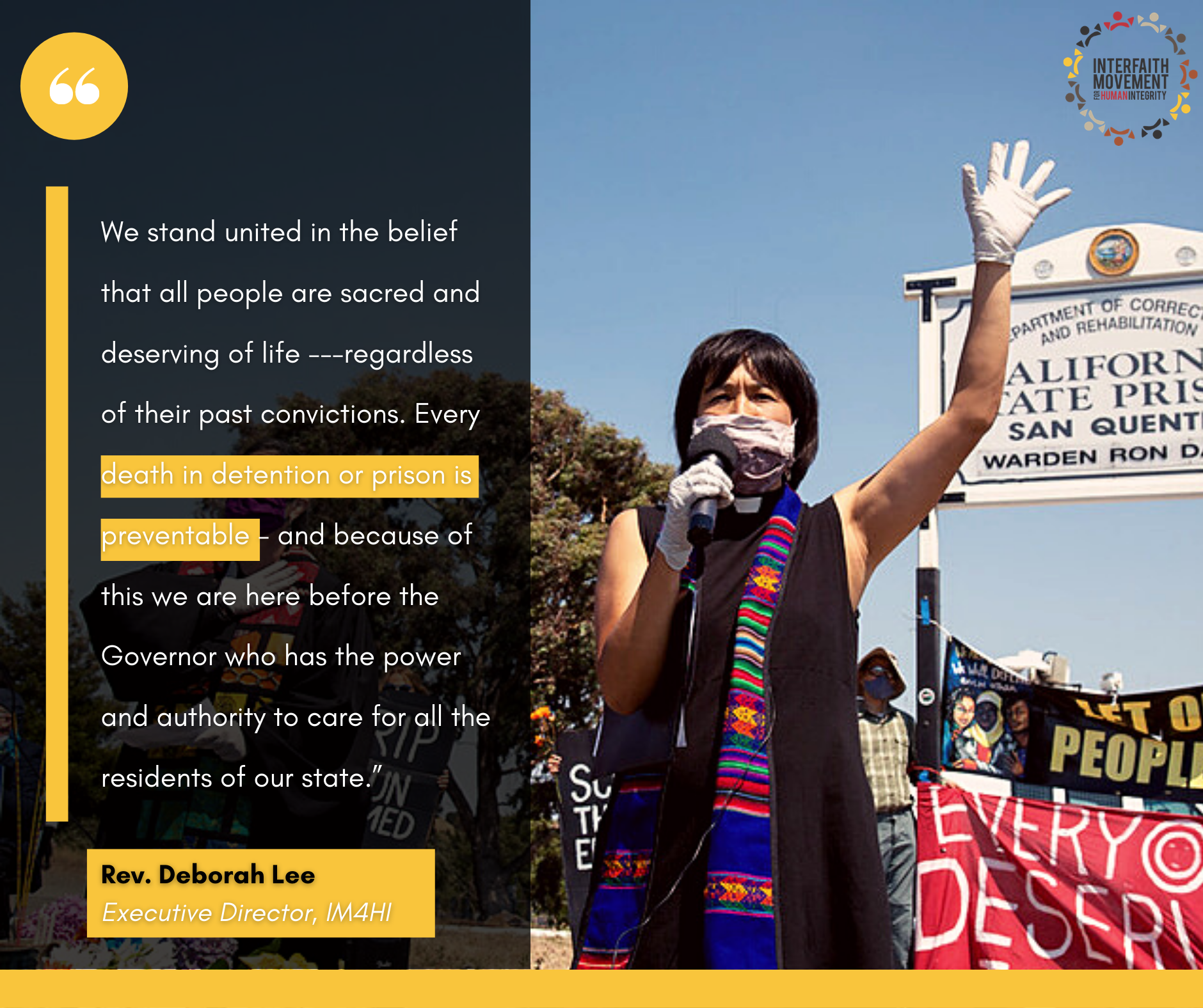
A short video we produced with the assistance of those inside immigration detention to elevate their appeals for their lives during the early stages of the pandemic. This video was a precursor to widespread public advocacy and judicial orders to reduce detention population. Watch the video.
We hope that 2021 heralds a more prominent role for progressive forms of faith and spirituality in public life. Please join us!
Food Security
IFH has been delivering two weeks’ worth of food containing fruits and vegetables, canned pantry staples, eggs, protein-rich meat, fish, and beans, rice and bread to a total of 250 community members. Families receive Native medicines; sage, cedar, tobacco and Sweet-grass. Weekly IFH staff and volunteers packaged essential foods for families and elders along with essential Covid supplies. We have been making regular front door deliveries of lifeline foods and goods to those in need. Our community garden helped provide produce, squash, onions, carrots, tomatoes, blackberries, grapes and native herbal medicines. In November we usually host a Community Harvest dinner this year we were not able to do this. So we delivered Harvest Food to over 354 Native community members. For the December Holidays we organized a large community food distribution to over 93 families. The native community that IFH serves are getting COVID, and we are seeing some deaths.
COVID Supplies
IFH distributes vital COVID health supplies such as hand sanitizer, antibacterial hand wash, Lysol wipes, disinfectant spray, face masks, toilet paper and facial tissues.
Families with Babies
IFH offers help for families with babies by offering diapers, baby formula and used baby clothes. Gift cards are provided to help with immediate needs. IFH provides resources and information on low income housing needs when it is available.
Emergency Kits
IFH was able to raise enough funds to provide 48 familes with an emergency supply kits. Thermometers, solar radios, first aid supplies, batteries, native medicines, face masks, etc. With all the natural disasters of fire, floods, earthquakes our families need to be prepared. Many of our families have lost their family tribal homes in the fires up north.
Computer Technology
To lessen the loss of computer access while in isolation, IFH has provided 12 families with computers equipped with Microsoft Office and virus protection. Our families are in need of computer technology and we are trying to meet that need.
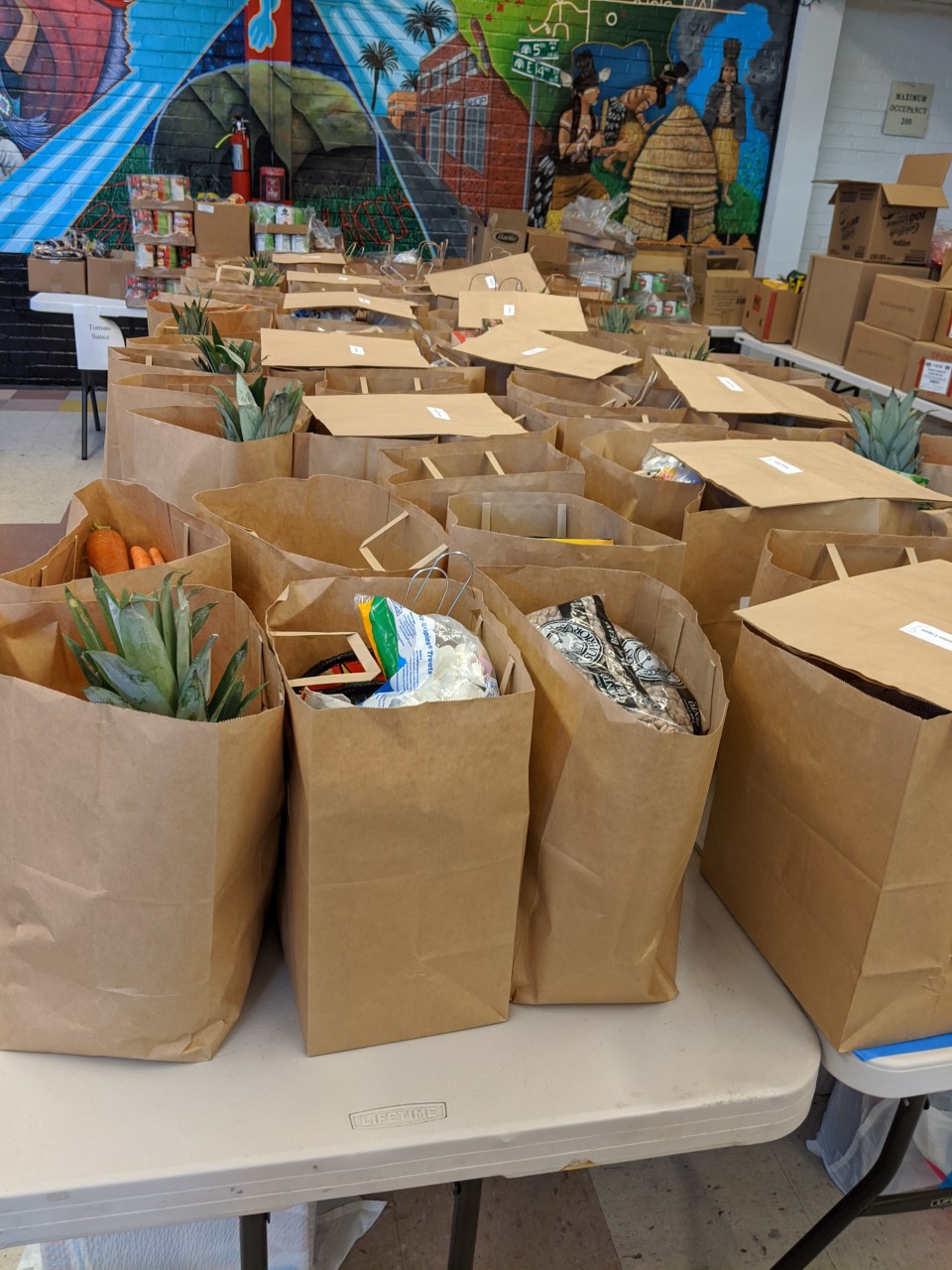
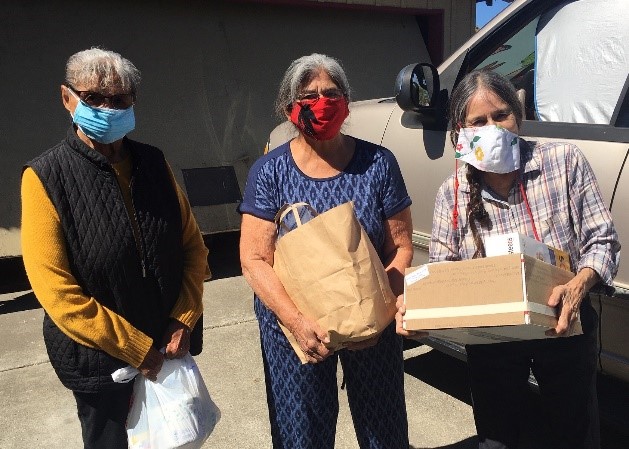
Intertribal Friendship House (IFH) located in Oakland, CA was established in 1955 as one of the first urban American Indian community centers in the nation. It was founded by the American Friends Service Committee to serve the needs of American Indian people relocated from reservations to the San Francisco Bay Area. Originally created as a community center, IFH expanded into social services when staff became concerned about the lack of resources for American Indian people as they faced the challenges of relocation from reservations to urban communities such as Oakland due to the displacement from their native lands. The Bay Area American Indian community is multi-tribal, made of Native people and their descendants—those who originate here and those who have come to the Bay region from all over the United States and from other parts of this hemisphere. For urban Native people IFH has served as the Urban Reservation and Homeland. In many cases it is one of the few places that keeps them connected to their culture and traditions through pow wow dance, drumming, beading classes, and the many social gatherings, cultural events, and ceremonies that are held there. Intertribal Friendship House is more than an organization. It is the heart of a vibrant tribal community.
We are Islamic Center of Zahra, a non profit organization operating out of Pleasanton, CA. For over a decade we have been connecting Muslims in the East and Northern Bay, a previously underserved area. Some projects our Masjid has done in the past include distributing care packages to the homeless, a blanket drive for almost 250 people, and other initiatives for needy families around Eid. The GTU grant has been incredibly helpful in aiding us to continue and expand on these efforts.
With the grant money provided by GTU we have hosted 2 events as yet. Our first event was a grocery distribution to needy families in Oakland which we did in conjunction with Who Is Hussain (SF) and Oakland Youth Aspire in which we provided groceries to over 300 families. Due to the high population of vulnerable people in Oakland, we chose to distribute goods in this area which included not only food but reusable face masks as well.
Ramadan is a time of reflection and giving, so during this time we planned to distribute iftaar (dinner) in Oakland. We arranged to distribute food packages to over 100 people, which included dates, hummus, pita, salad, rice, chicken, and baklava. For children we also had treat bags with additional snacks and candy. For this event we partnered with Oakland's Lighthouse Masjid who helped us discern where to pass out these food packages.
Currently, we are planning our next event which is to provide school supplies for needy families across the Bay Area. For this we are reaching out to RISE Academy, an Islamic School located in the South Bay serving students across the Bay.
COVID has been an incredibly difficult time, not only for our community but for those around us as well. In a time when the Masjid was shut down due to safety and health precautions, it was easy to feel isolated and detached from community. Coming together to host these events and help those less fortunate around us has provided a sense of community and connection in a time when it was all too easy to feel alone. We are so thankful to GTU for providing us this grant and opportunity and hope to remain in partnership so we can continue these efforts as the pandemic comes to a close. As it seems the pandemic is ending, those around us still face obstacles. Without the added barrier of COVID, it will be easier to support those around us and provide necessities that can be difficult to obtain; we hope to continue this partnership in an effort to continue this necessary work.
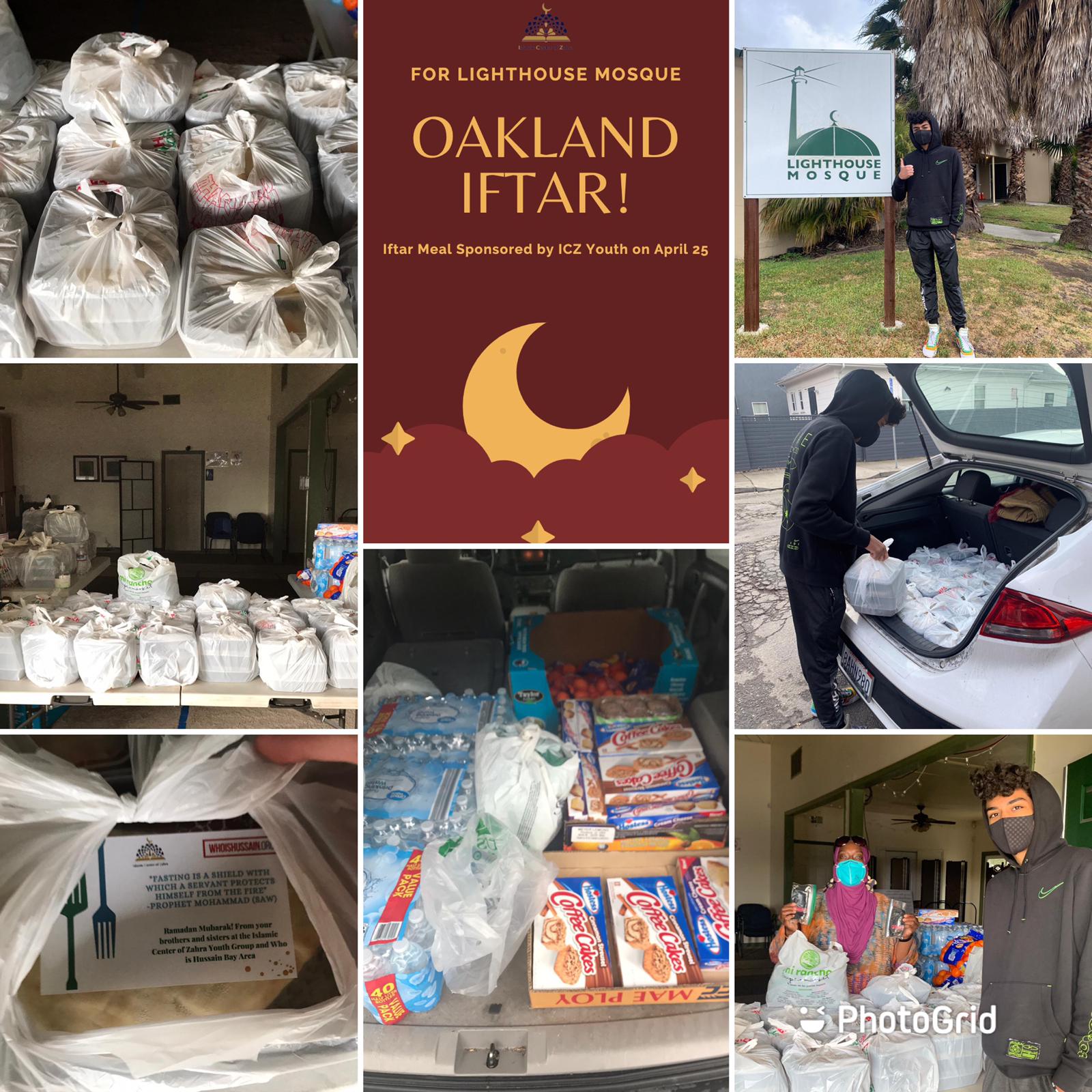
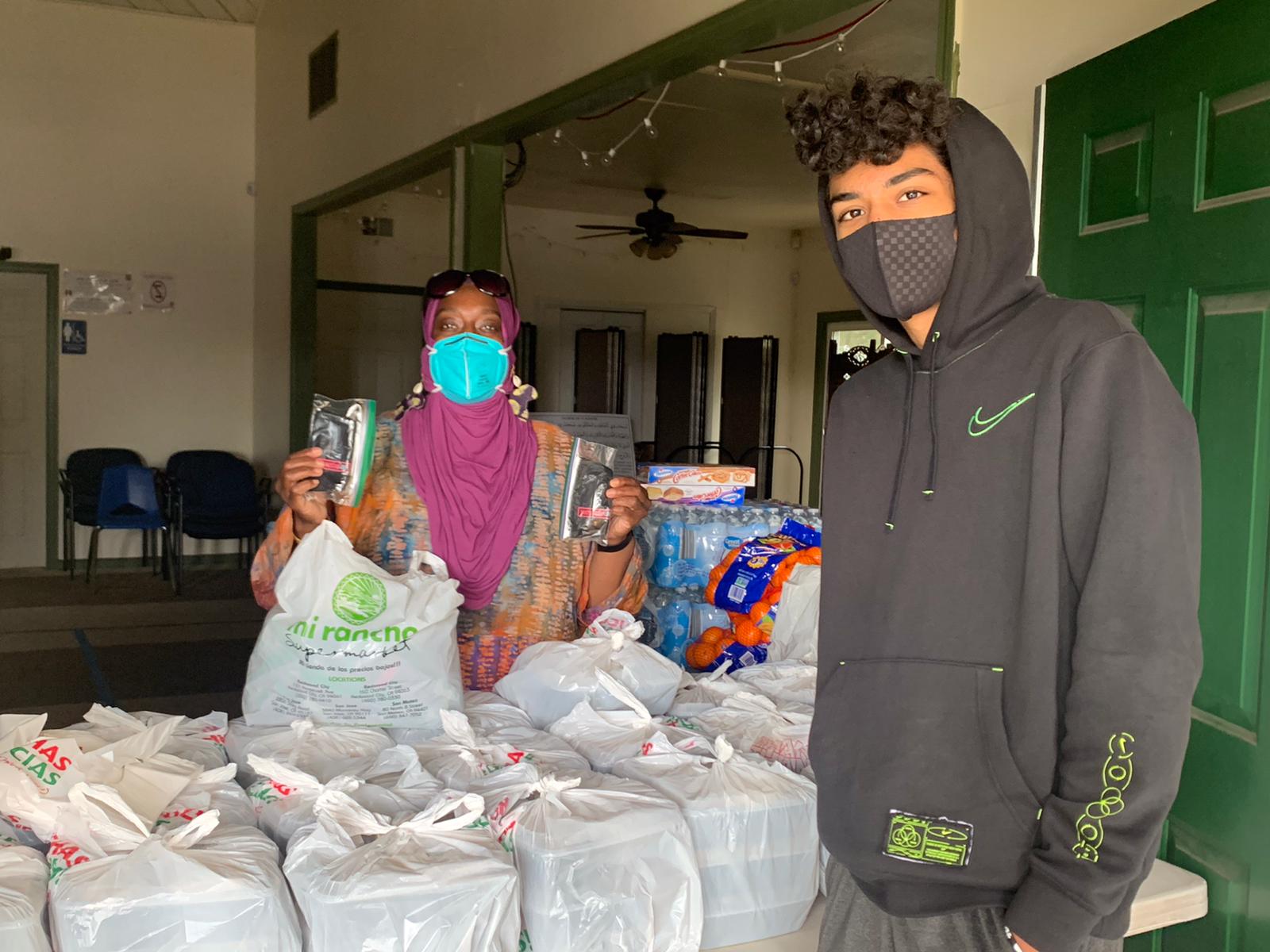

As salaamu alaikum, greetings of peace. Thank you to the GTU Steering Committee for selecting the Lighthouse Mosque in Oakland as the recipient of the GTU Luce Covid-19 Community Partnership Grant. We especially thank the Henry Luce Foundation for making possible these generous grants during the challenging time of the pandemic.
With the generous grant, the Lighthouse Mosque was able to partner with local individuals and organizations to:
- Provide food to those in need
- Pay for truck rentals for food distribution
- Provide transitional housing for the formerly incarcerated
In addition, we recently partnered with many local organizations, including the Support Life Foundation and the Native Health Center, for a mobile vaccination clinic set up at the Lighthouse Mosque, and supervised by the County of Alameda.
As we begin to see things open up, the Lighthouse Mosque continues to serve the Muslim community and the larger communities in Oakland and beyond, and especially those who are most vulnerable.
We look forward to our continued partnership with the GTU and especially the Center for Islamic Studies, and we thank you all again.



Watch videos of Lighthouse Mosque's work on their Facebook page, which can be viewed here and here.
The Lighthouse Mosque was founded in 2007 by Imam Zaid Shakir. The community of the Lighthouse is diverse and tries to adhere to the teaching of Allah's final Messenger PBUH. Currently the Lighthouse is run by a Majlis Shura consisting of 5 brothers and 3 sisters. It is located in North Oakland and has a rotating group of teachers and speakers that teach classes and delivered khutbah.

As-Salaam Alaikum.
Masjidul Waritheen would like to express gratitude to the GTU Steering Committee and the Henry Luce Foundation for the COVID-19 Community Partnerships Grant.
This last year has been a very difficult and challenging one with the global COVID-19 pandemic. Our community has been able to provide continued support for the vulnerable and those most impacted by the pandemic. The COVID-19 grant aided those in need, with: PPE, food, utility bills, and janazah (funeral) expenses.
Masjidul Waritheen is dedicated to the service of all humanity. We look forward to our ongoing partnership and work with the GTU, member schools and especially with academic and public programs on Al-Islam/Muslims and racial and economic justice.
From MU'EED Co-Founder and Eating Rights Project Director Sister Amelah Elamin:
We extend our deep gratitude to the Henry Luce Foundation and the Graduate Theological Union for the Covid-19 Community Partnership grant and for the opportunity to work together over the last year.
MU’EED is a non-profit organization established in May 1993 to promote humanity on an individual, family, and community level. Our mission is to be vanguards in the process of preserving, promoting, and restoring humanity. Our vision is an expanding cycle of support, empowerment, and a collective sense of humanity.
Since COVID-19, MU'EED, by way of our project Eating Rights (ER), has distributed 20lb boxes of produce as well as other essential grocery items to the households of the elderly, disabled, and low-income families in Oakland and surrounding cities. Eating Rights has also been distributing hot meals every Sunday to the elderly and disabled.
MU'EED has additionally distributed hygiene kits, blankets, rain gear, vitamins and non-perishable snacks to the homeless bi-monthly since the beginning of the pandemic.
On May 9, 2021 MU’EED coordinated our 13th annual Humanitarian Day event. HDay is an event geared towards our local un-housed community. We distributed 300 meals, hygiene kits, socks, hand warmers and other essentials.
In addition to the Sunday dinner provided to our elders, the Eating Rights project of MU’EED over 350 Iftar dinners doing Ramadan to low income families in Oakland and surrounding cities.
We have shared some images of our work here and more are available on our website and look forward to continuing our collaboration in this important work.



The Northern California Dr. Martin Luther King, Jr. Foundation were able to use the Luce Foundation grant towards the organization’s own Black and Brown Comix Arts Festival (BCAF). BCAF’S Art in the Square is a new program that opens a square space for youth to express themselves through the audio/visual lens. Taken from the NorcalMLK Foundation’s MLK2020 ‘The Time for Justice’ Square Ad program, NorcalMLK is transforming this successful campaign into a new youth arts program.
North American Islamic Shelter For the Abused (NISA) is sincerely grateful to the Graduate Theological Union and its Center for Islamic Studies for their collaboration with the Henry Luce Foundation’s Theology Program in an initiative that involves rapid responses to the COVID-19 pandemic, through their generous grants. NISA is a very thankful recipient.
In 2002 NISA was established as a 501-C (3) non-profit organization. NISA’s mission is to reduce, if not eradicate, all forms of domestic violence and to help families to achieve domestic harmony by raising consciousness awareness via education, coaching, counseling and through many collaborative projects within the Muslim community and other established organizations outside the Muslim community. In addition to managing a hotline for the abused to seek support and resources, NISA also operates a women’s shelter for women and their children who have experienced trauma at the hands of their abusive and violent spouses. Our services are free and available to anyone who needs assistance, irrespective of ethnicity and religion.
Our clientele is massive which includes Muslim women of color and their children, refugees, and single-parent families. We address and serve our clients’ needs by using many resources. However, with the COVID-19 pandemic, our challenges have increased. There has been an increase in calls at our hotline, but we have limitations in serving due to Shelter in Place. There are space restrictions at our shelters.
With the generous grant NISA received we have been able to continue to help scared and desolate abused women, some with children, and check them into Motels to feel safe and secure. Due to COVID, advocates were no longer able to due to health and safety reasons transport clients to and from court or other appointments. Hence there has been an increase in cost of Ubering clients from one place to another. Some women were not provided with the basic necessities at home: hand sanitizers, masks, phone, money, vitamins, medication. NISA was able to make these vital purchases and ensure they had COVID related supplies. There was a surge in food costs and other expenses as many clients at the shelter have lost their jobs due to COVID.
NISA also organized virtual talks with expert speakers for the community to help deal with the crisis and educate on mental health and self-care.
While working with the many limitations that COVID-19 has brought, we still take pride in ensuring that our clients feel safe and have a sense of security. Receiving this generous grant has brought relief for women who are in dire need of not only, support, love, understanding, comfort, but also financial assistance, guidance, housing, jobs, and well-being.
The Oakland REACH is a parent-run, parent-led group committed to empowering families from Oakland's most underserved communities to demand high-quality schools for children.
Please click the image and watch the video of Oakland REACH's Virtual Family Hub back-to-school giveaway, which the Luce grant from the GTU supported:



With the GTU Luce COVID Relief Grant, Oakland Youth Aspire was able to:
- Provide over 300 grocery bags assembled and distributed in Defremery Park as well as various homeless encampments around Oakland
- 6 food items + cloth facemasks in each bag
- Collaborate with Who is Hussain, Islamic Center of Zahra and Islamic Cultural Center of Northern California.
Click Here to watch a video of Oakland Youth Aspire's event.
Oakland Youth Aspire enriches the lives of youth by creating a fun and welcoming environment that promotes a healthy lifestyle and fosters open communication, empathy, and the development of interpersonal skills.
One activity that had an impact in the wider community was our fundraising campaign for PPE equipment for the Santa Clara Valley Medical Center, the county hospital that serves the most vulnerable segments of society. The anesthesiology department that was responsible for intubating patients was extremely grateful.
The Mission of SBIA is: 1. To provide Islamic educational, religious and social services 2. To collaborate with other organizations to serve the greater Muslim community 3. To develop a harmonious relationship with neighbors and community at large within the framework of Islam.
Street Level is an Oakland-based community center dedicated to improving the wellbeing of underinsured, uninsured, and recently arrived immigrants in Alameda County.
"Since COVID-19 MU'EED, by way of our project Eating Rights (ER), has distributed 20 lb boxes of produce as well as other essential grocery items to the households of the elderly, disabled, and low-income families in Oakland and surrounding cities. Eating Rights has also been distributing hot meals every Sunday to the elderly and disabled.
MU'EED has additionally distributed hygiene kits, blankets, rain gear, vitamins and non-perishable snacks to the homeless bi-monthly since the beginning of the pandemic."
--Amelah El-Amin, Co-founder, MU’EED

